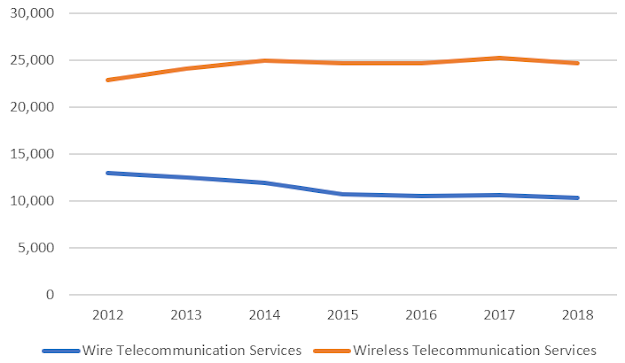Network
infrastructure
Korea’s advance network was made possible by a
robust IT Infrastructure and concentrated population density. Close to 50% of
the population lives in the Seoul Metropolitan area, which makes free,
high-speed Wi-Fi more feasible to deliver than in other demographics.
The current developed network infrastructure was
initiated with the National Basic Information System (국가기간전산망) in the 1980s, an investment to prepare for the information/digital
era. This system was initially installed to connect public, financial, medical
and other services. Since 1995, as the demand for high-speed internet
increased, the government invested in the high-speed internet network,
expanding connection of initial 80 locations to over 140. Also, one major component was the
implementing a backbone fiber optic cable infrastructure which boosted internet
speed to a high level in the late1990s. As the whole country was connecting
through the internet and with the Korean culture of urgency (Korea is known for
its ‘bbali bbali’ or fast faster culture), demand grew and competition to
provide cost-efficient faster internet speed increased.
Korea
fastest internet
Korea was one of the first countries in the
world to invest in high-speed internet infrastructure and quickly developed a
reputation for fast access. From 2017 to 2019, Korea was ranked no. 1 in the
world for internet speed. Recent research shows that Korea's rank for internet
speed has dropped to 30th. Other
countries have recently developed and established 3rd and 4th generation
communication networks which are more advanced than what Korea has.
However, Korea has continued to invest in network
technology and is investing in 5G. . Wireless
communication is quickly replacing traditional wired telecommunications. With
the new technology, the goal is to re-achieve the unequivocal title of fastest
internet
Telecommunication
Market size

Source: Statistics Korea
Units: KRW billion
5th Generation Communication Network
In April 2019, Korea was the first country to
launch a commercialized 5G network. Achieving the title of no.1 commercialized
5G network was possible as the telecom companies and electronics companies
collaborated to achieve this single goal. A few weeks after the launch,
according to internet speed testing webpage Ookla, mobile internet speed in Korea
became the globe's fastest. Within a year, the three carriers, SKT, KT and
LGU+, offer coverage within the metropolitan area of 50% to 60% with a max
speed is 1.8Gps and an average speed of 500~900Mbs. Based on market research by
RootMetrics, in the U.S., the top coverage within the major city area is less
than 10% and the max downloading speed is 780Mbs.
However, there are downsides to a 5G network.
The coverage, content and cost for 5G service still needs improvement. 50% ~
60% coverage will not satisfy the existing consumers even if it is significantly
higher than other global 5G network standards. The price for 5G service is
higher than 4G and consumers must also purchase \mobile devices with the
capability to access 5G network adding to the cost that customers must bear.
Another issue is content. While 5G networks can provide unique content, the
domestic market cannot produce enough 5G content that is superior to that of 4G
networks. The hope is VR/AR contents, cloud gaming and big data platforms to be
released.
The
Next Generation Communication Network.
6G communication network development is already in
process. A source from the Institute for Information and Communications
Technology Promotion (IITP) stated that 6G technological tests are in the approval
stage. After 2021 they will be able to develop the technology under a
government grant. The initial development of 6G technology was launched later than
China and the US, which started around 2018. One of the key players of 5G
technology, Samsung Electronics, announced that they have started investing in
6G technology and will be able to commercialize it in 2028 and believe it will
be commonplace in 2030. Unlike the focus of 5G which was solely on performance,
6G has three focuses, collaborative performance, structure and
credibility.
Powerful
Network Country
The value of the communication network is expanding rapidly. Applying new technology requires a massive volume of information to be transmitted and the network provides the pathway. Korea is well known for its network infrastructure and has gained an enormous amount of success from it. Moreover, Korea is known for preparing for the next generation such as the first launch of 5G. Now the spotlight is on 6G. The three telecom providers are committed to providing the best wireless service to customers, no STRINGS attached!
서울시 종로구 새문안로 92 광화문 오피시아빌딩, 1705호 Tel: +82-2-737-3222, http://www.ircconsultingkorea.com


No comments:
Post a Comment